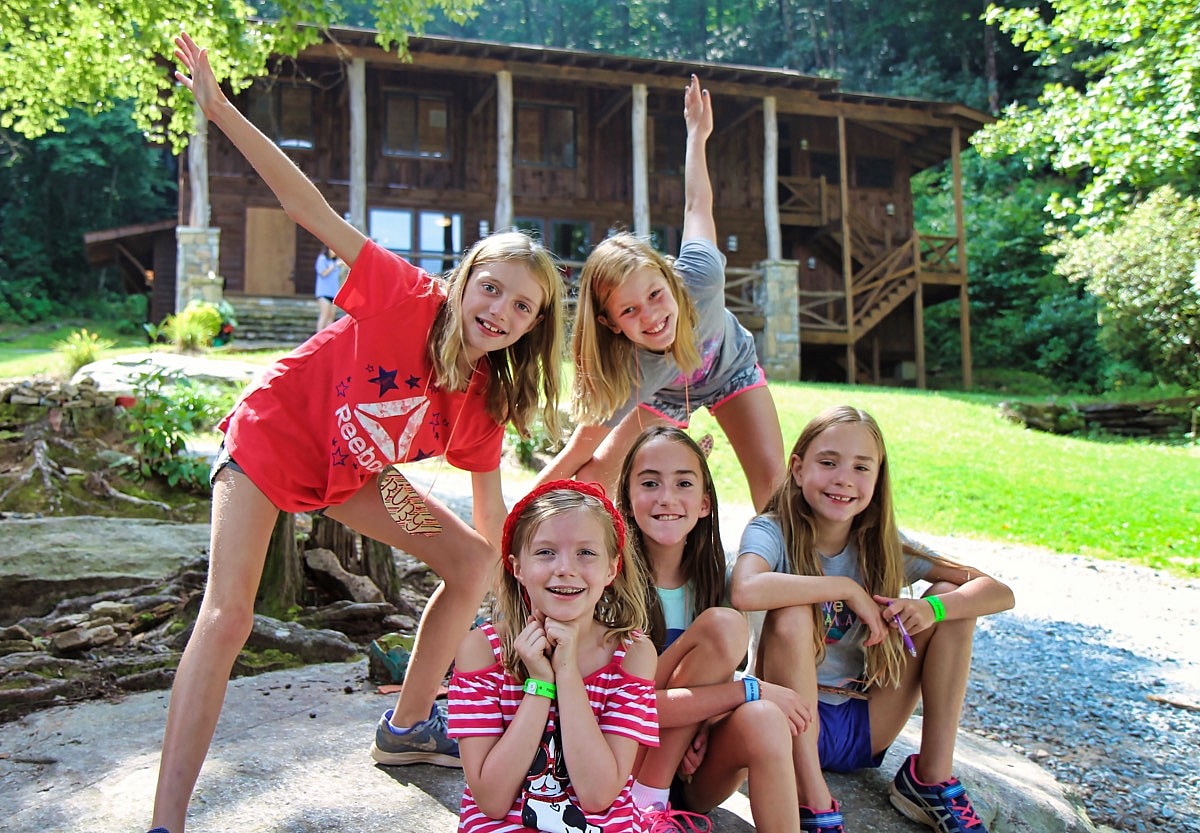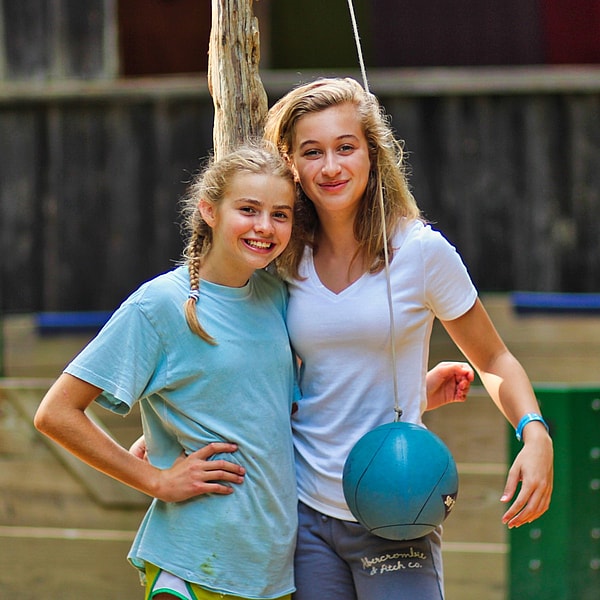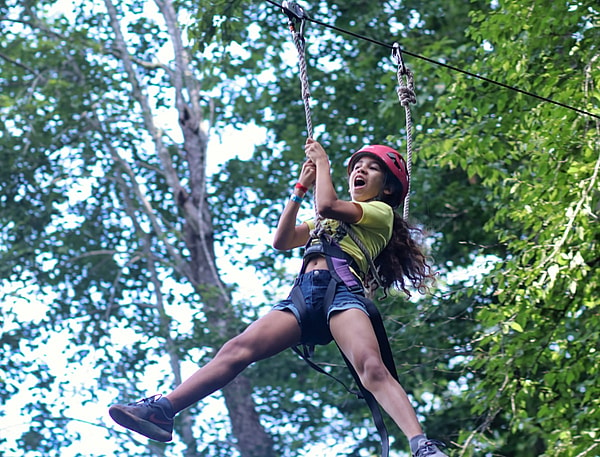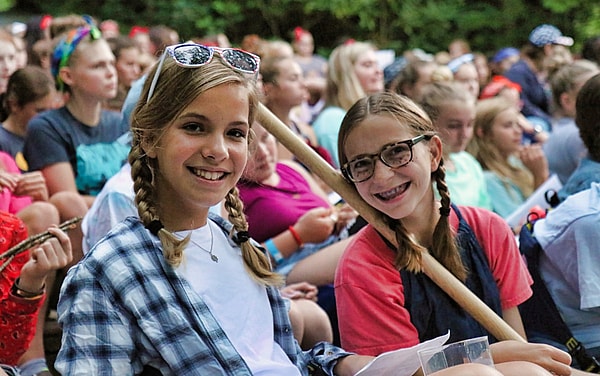On the bulletin board where announcements are posted, you’ll see the lost and found list. As the name suggests, campers update the list about belongings they have lost or found while at camp. Sometimes the list gets pretty specific (“If anyone sees a sock that is blue with cooked pink shrimp on it, please return it to Middler 6!”), and we read the list aloud frequently to make sure that girls return with everything they came here with. When the list was read today, though, there wasn’t anything on the lost list. In fact, there were only items on the found list. I thought this was beautifully poetic—it represented the ways in which the community was looking out for each other, even before anyone realized they had lost something.
In many ways, this idea seeps into our everyday lives at camp. In coming to camp, we lose things, or more accurately, are without things. We have the basics in our trunk: a flashlight, a book, some clothes, and some friendship bracelet string, but we are without some of the more present items of our existence: our phones, our computers, the familiar environments we are used to. Yet camp girls come back every year, and daydream about it all throughout the year. I think that is because they have found so much more at camp than they have lost. They find strength in them that they never knew was there before, they find that they have a lot in common with people from different backgrounds, they find the capacity in them to be giving and authentic—the found list is much longer than the lost list.
Throughout camp, the exchange between lost and found is seen every day. Today, it was announced that there was going to be a trip on the camp zip-line course. The zip-line goes throughout the back side of camp, taking girls across waterfalls and through the trees. This trip is generally offered multiple times every day, and is always wildly popular. As this was the first activity day for many girls, today was a particularly popular day to sign up for the trip. Because the trip was so popular, it was impossible to get everyone who wanted to go today on the trip (they’ll definitely have more opportunities to go, though!). A trio of juniors who arrived yesterday were all in line for the trip. When two of them drew cards that meant that they could go, but one of them could not go, the two who were chosen to go on the trip gave up their spaces, saying that they would go another time when their friend could go. This beautifully exemplified this lost and found principle. Even though they lost going on the trip today, they found a way for them all to go together another time. More than that, though, they found a deeper sense of friendship and the joy that comes from being a loyal friend and the maturity that comes with compromising one’s own bliss for the good of others. They gained much more than they lost.
At camp, we see this in other ways too. Sometimes, what we lose is not as tangible as a sock or even a zip-line experience. A lot of the time, it’s our inhibitions and the things that prevent us from having fun and being our true selves. The other day, we were having an evening program called “Jug Band.” Jug Band is an old-fashioned campfire that incorporates Appalachian culture and silliness. Everyone brings an “instrument” (like rocks or brooms) and sings songs such as “Mountain Dew” and “Wagon Wheel.” Jug Band is incredibly fun, but is also incredibly silly. On the night of Jug Band, a middler cabin lacked their usual enthusiasm for the event. They were hesitant about going, and did not want to dress up. Their counselors, however, started playing on instruments (trunks and tennis rackets) and making up songs. Before long, the entire cabin was joining in the fun, creating their own band! By the time they showed up to Jug Band, they were some of the most enthusiastic and spirited campers at the fire.
In their cabin, the band kept practicing and writing new songs. The band’s name was “Saurkraut,” (the spelling is intentional) and tonight during twilight, Saurkraut had their first performance. They created tickets that they handed out to everyone (some of the tickets were even autographed: ‘Saurkraut! Rock out!’) and one of their hit songs was “Do You Jam, Bro?” The band was a hit, and the reviews were raving, “That’s the best thing that’s ever happened at twilight!” When inhibitions were lost, Saurkraut was found. Creativity, a greater sense of community, identity, and the ability to let our hair down—these are the things we find here at camp.
The other thing about lost and found at camp is that we learn to live without the things we have lost. We realize we can live without that sock, that we can thrive without our phones. But when things are found, we gain a new appreciation for them. We want to keep what we’ve found safe, we know it in an entirely different way. I think that’s how the intangibles at camp work, too. We find this authentic version of ourselves, someone who knows how to compromise and get along with others, who seeks the best in others, who isn’t afraid to get her hair wet. When we go home, we have a new appreciation for this version of ourselves, and we live differently, as we continue to stay found.





0 Comments
Comment section